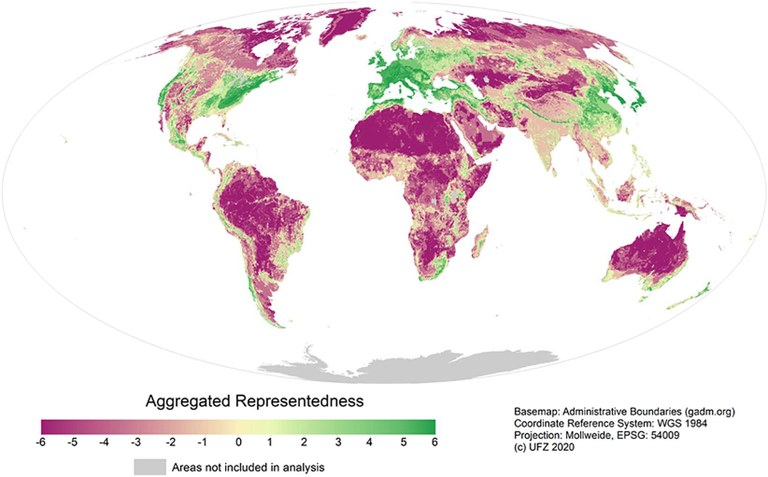Study on the biogeographical and socio-ecological representativeness of the ILTER site network
23 July 2021
In a collaborative effort of multiple LTER member networks, as well as external input from the University of Maryland and the University of Salzburg, ILTER has funded and recently published an open-access study dedicated to assessing the biogeographical and socio-ecological representativeness of the ILTER site network.
The findings of this study and derived recommendations will foster and support the future development of ILTER. The developed methodology also bears relevance for eLTER and has already been applied to the eLTER sites. The findings were presented at this year’s virtual European Geosciences Union (EGU) meeting.
Further information:
Ohnemus, T., Mollenhauer, H., Mirtl, M., and Zacharias, S.: Designing the eLTER Research Infrastructure: representativity, priority regions and recommendations for development, EGU General Assembly 2021, online, 19–30 Apr 2021, EGU21-5273, https://doi.org/10.5194/egusphere-egu21-5273, 2021.
Wohner, C., Ohnemus, T., Zacharias, S., Mollenhauer, H., Ellis, E. C., Klug, H., Shibata, H., & Mirtl, M. (2021). Assessing the biogeographical and socio-ecological representativeness of the ILTER site network. Ecological Indicators, 127, 107785. https://doi.org/10.1016/j.ecolind.2021.107785”
Christoph Wohner (Environment Agency Austria)
